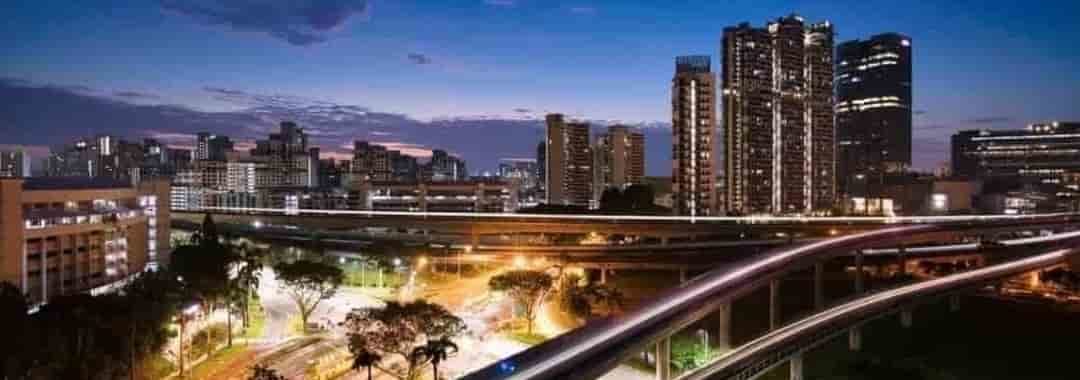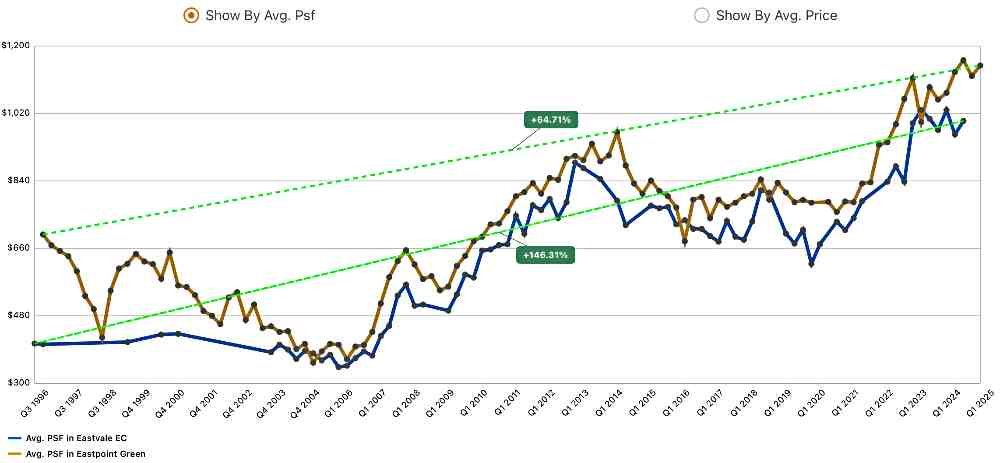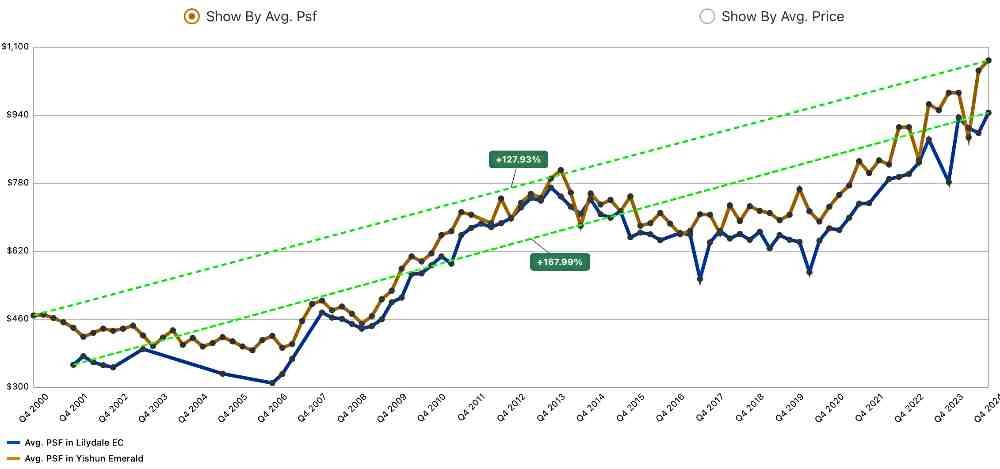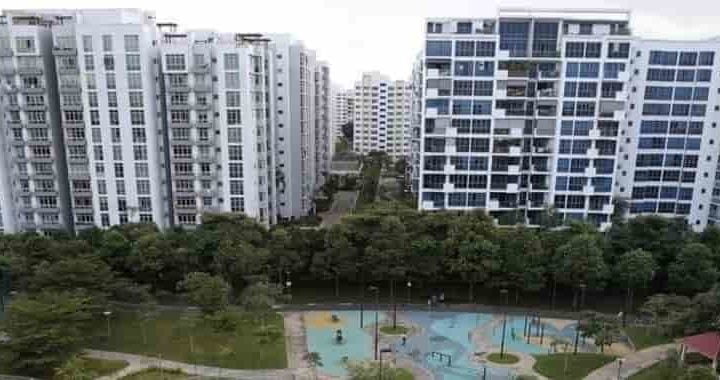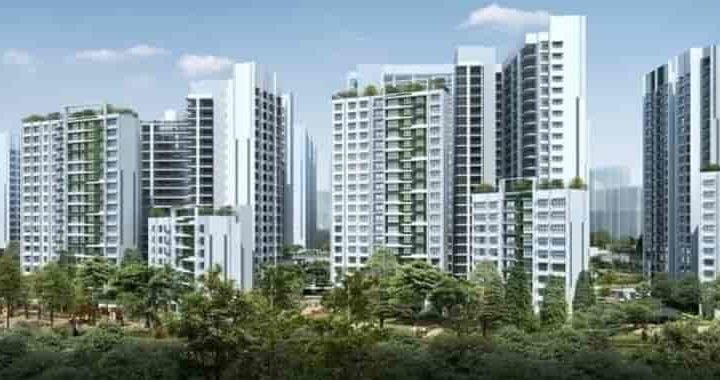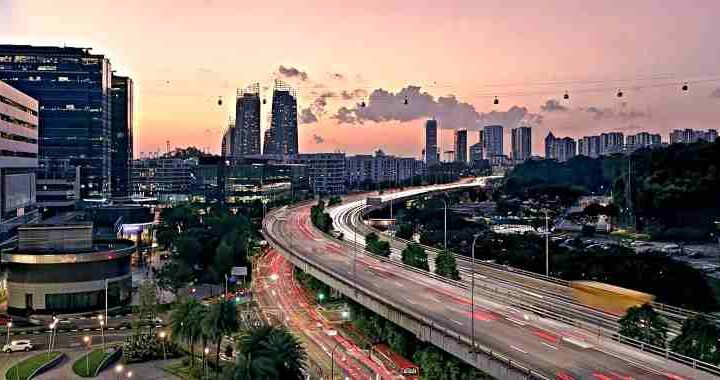- What Is An Executive Condo (EC)
- Eligibility Criteria For Purchasing An Executive Condominium
- Housing Grants for Executive Condos
- Executive Condominium Resale Levy
- Financing of Executive Condominiums
- Location of Executive Condos (EC)
- Price Differences Between Executive Condos Versus Mass Market Private Condos in OCR
- A Property Investment Analysis: Executive Condos Versus Private Condos
- Case Study 1: 10-year Average Price Growth (psf) of Executive Condos vs Private Condos
-
Case Study 2: Price Analysis of ECs Versus Private Condos in the East, West And North
- Eastvale EC versus Eastpoint Green (District 18, East)
- The Floravale EC versus The Mayfair (District 22, West)
- Lilydale EC versus Yishun Emerald (District 27, North)
- Executive Condominiums' Ownership Criteria Have Negligible Impact
- Financing of Resale Executive ECs
- Development of Regional Centres Benefits Executive Condos
- Effects of New HDB Flat Classifications
- Conclusion: Executive Condo Investment Potential and Pitfalls
- Other Property Resources
- Reviews of New Property Launches
Can an executive condo (EC) be a good investment? To answer this question, let's undertake the following EC case studies:
- Comparison of 10-year island-wide price trend of executive condos (EC) versus 99-year leasehold private condos.
- Comparison of average price (psf) growth between executive condos and private condos in District 18 (East), District 22 (West), and District 27 (North).
These case studies (at the end of the article) have demonstrated that executive condos can be an attractive property investment option for those who are eligible to purchase one.
But, before delving further into the case studies, you may wish to learn more about executive condominiums (ECs) and the key regulations governing them:
- EC eligibility criteria: A detailed examination of the requirements for EC purchase.
- HDB housing grants: Information on available HDB grants applicable to EC purchases.
- HDB resale levy: How resale levies are applied on HDB and EC transactions.
- Executive condo financing: An overview of EC financing options.
What Is An Executive Condo (EC)
The first executive condo (EC) was introduced by the Housing and Development Board (HDB) in 1997. They are more 'atas' (a colloquialism for high-class) than HDB flats and are generally comparable to mass-market suburban private condominiums. In fact, they are almost indistinguishable from the latter, but are priced more affordably.
In a nutshell, an executive condo is a public-private hybrid housing that caters to middle-income Singaporeans who do not qualify for new HDB flats as their monthly household income exceeds the eligibility ceiling of $14,000. Yet, they are unable to afford private condominiums.
ECs are developed and sold by private developers but are subsidised by the government. In other words, they are introduced for the “sandwiched” class who aspires to live in a property with facilities like a swimming pool, gym and clubhouse, similar to what a private condo offers.
Former National Development Minister Khaw Boon Wan once likened executive condos to buying a Lexus at the price of a (Toyota) Corolla. But there are certain ownership restrictions imposed by HDB. These include the following:
- Owners must meet the 5-year Minimum Occupancy Period (MOP) rule before they can sell.
- Between the 5th and 10th year of ownership, they can only sell to Singapore Citizens (SC) and Singapore Permanent Residents (SPR).
- ECs can only be sold to foreigners after 10 years when they become fully privatised.
- Owners cannot rent out the entire unit within the 5-year MOP. They must retain at least one bedroom for their own occupation and must register the rental of bedrooms with HDB within 7 days of commencement of lease.
Eligibility Criteria For Purchasing An Executive Condominium
To purchase an executive condominium, buyers must satisfy a list of HDB eligibility criteria. These include the following:
- Must form a family nucleus that falls under either the Public, Fiancé/Fiancée, Orphans, or Joint Singles Scheme.
- Must be a Singapore Citizen with one other applicant being a Singapore Citizen or Singapore Permanent Resident.
- Applicants must be 21 years old, and at least 35 years old if applying under the Joint Singles Scheme.
- Gross monthly household income must not exceed $16,000.
- Do not own other property overseas or locally, or have not disposed of any within the last 30 months.
- Have not bought a new HDB/DBSS flat or EC, or received a CPF Housing Grant before, or have only bought 1 of these properties/received 1 CPF Housing Grant thus far
You may wish to refer to our executive condo FAQs for more information.
Housing Grants for Executive Condos
Eligible buyers of executive condos may receive up to $30,000 of CPF Housing Grant depending on their monthly household income level.
Families who have a monthly household income of $10,000 or less will receive the maximum $30,000 housing grant. But, those who exceed $12,000 will not be given any as they are deemed to be in a better financial position to purchase and finance an executive condo.
The amount of EC housing grant given is based on the level of household income indicated in the table below:
| Average Monthly Gross Income of Applicants/Occupants | FAMILY GRANT | Half Housing Grant
First-Timer (FT) SC & Second-Timer (ST) Who Has Previously Taken 1 Housing Subsidy |
|
| SC Household | SC/SPR Household | ||
| $10,000 or lower | $30,000 | $20,000 | $15,000 |
| $10,001 to $11,000 | $20,000 | $10,000 | $10,000 |
| $11,001 to $12,000 | $10,000 | Nil | $5,000 |
| $12,001 to $16,000 | Nil | Nil | Nil |
| *SC - Singapore Citizen *SPR - Singapore Permanent Resident | |||
Executive Condominium Resale Levy
EC buyers will be subjected to resale levies if they have previously purchased a subsidised HDB property, whether it is a BTO flat or an executive condominium from a developer (where the land sale was launched after December 9, 2013).
To simplify, a resale levy is imposed if buyers:
- Dispose of their HDB-subsidised flat and purchase another HDB-subsidised flat, or;
- Dispose of their subsidised flat and buy an EC from a developer where the land sale occurred on or after December 2013.
EC buyers will not need to pay a resale levy if they bought:
- A Design, Build and Sell Scheme (DBSS) flat from a developer.
- An EC from a developer where the land sale occurred before December 9, 2013.
- A resale HDB apartment.
- A private residential property.
The amount of the resale levy payable will depend on the type of property owned, which could be as high as $55,000, as indicated in the table below:
| First Subsidised Housing Type | Resale Levy Amount | |
| First Subsidised Housing Type | Recipient of CPF Housing Grant (Singles) | |
| 2-room/ 2-room Flexi flat | $15,000 | $7,500 |
| 3-room flat | $30,000 | $15,000 |
| 4-room flat | $40,000 | $20,000 |
| 5-room flat | $45,000 | $22,500 |
| Executive flat | $50,000 | $25,000 |
| Executive Condominium | $55,000 | Not applicable |
Financing of Executive Condominiums
EC buyers are not eligible for HDB loans. This means buyers will have to secure a loan from a bank or financial institution.
Both a bank loan and an HDB loan offer financing of up to 75% of the purchase or valuation price of the property (whichever is lower).
This means buyers will have to pay a 25% down payment from their pocket. Of this, 5% must be paid in cash, while the remaining 20% can be a combination of CPF and cash.
EC buyers are also subjected to the Mortgage Servicing Ratio (MSR) and Total Debt Servicing Ratio (TDSR) for their loan financing. For MSR, only 30% of the buyers' monthly income can be used to service their home loan.
For TDSR, their total monthly debt repayments, such as car loans, credit card bills, study loans, hire purchase agreements, are taken into account and they cannot exceed 55% of their monthly income.
Due to the more stringent mortgage financing limitations, the prices of new executive condominiums are capped to a certain extent. This is also to ensure EC buyers do not over-stretch their finances.
However, once ECs become partially privatised after their 5-year minimum occupation period (MOP), eligible resale EC buyers will only be subjected to the less stringent TDSR on their loan applications (more on this later).
Location of Executive Condos (EC)
Nearly all executive condos are located in the suburbs, except for Bishan Loft, which is situated within 10km of the Central Business District (CBD). There are several reasons for this.
Lower Land Cost Keeps Executive Condos Affordable
As mentioned earlier, executive condos are typically introduced for the “sandwiched” class, such as young graduates and professionals, who can easily afford HDB flats but may find private properties out of their financial reach.
To ensure ECs are affordable, the government recognise that the land cost is an important component. Therefore, designated EC sites are understandably located mostly in suburban areas. Generally, most are also located some distance from town centres.
Unsurprisingly, executive condos won't be found in prime areas due to the high land cost. Check out some of the factors to consider when purchasing a property.
Scarcity of Land
As Singapore is an island nation with only a total land area of 735.7 square kilometres (as of December 2024), this makes it the 188th largest country in the world out of 223.
With a population size of 6.04 million, it has the third-highest population density in the world behind Monaco and Hong Kong. Hence, the scarcity of land is a key contributor that makes Singapore the second-most expensive housing market in the world after Hong Kong.
This is a key reason why ECs are built in the suburbs, as the lower land cost keeps prices affordable. Whether this will make executive condos a less viable investment choice is addressed later in this article.
Trade-Off Between Cost And Convenience
Although most ECs are located in the suburbs, this does not necessarily mean they are far from the town centres, key transport nodes, shopping malls, and other essential amenities such as food centres and wet markets.
In fact, some are even located near an MRT station, such as Aurelle of Tampines, Tenet, Altura and Lumina Grand. These EC developments will naturally cost slightly more due to their higher land costs that take into account their better locations.
For the majority of ECs that are not located near an MRT or LRT station, commuting to work or school may be more inconvenient. But they may not necessarily be far from the town centre. For example, North Gaia, launched on 25 April 2022, is only 3 bus stops from the Yishun integrated transport hub and Northpoint shopping mall.
Although most ECs are not located in the choicest locations, they are attractively priced compared to private mass-market condos. For example, recent new launches such as Lentor Central Residences, Parktown Residence, and Norwood Grand have averaged around $2,100 psf to $2,200 psf. They are significantly costlier than new executive condos, which were sold around $1,700 psf on average during their launch.
Although not having a train station nearby may be a trade-off, the lower entry prices of ECs offer an attractive option to kickstart your property investment journey. Besides providing a higher standard of living than HDB flats, eligible applicants will also receive HDB family grants (see below for eligibility). This will help them lower the cost of home ownership.
Price Differences Between Executive Condos Versus Mass Market Private Condos in OCR
One of the main attractions of executive condos over mass-market private condos in the suburbs is their lower entry prices.
The substantial price disparity between executive condominiums and non-landed leasehold properties remains significant despite some narrowing in recent years, as indicated in the following table. Executive condos not only present a more accessible entry point for homebuyers, thereby reducing financial risk, but they can also offer a potentially superior investment option over time.
| Median Price ($ psf) Difference (as of February 2025) | |||
| Year | Executive Condo Median Price ($ psf) | OCR Non-landed Leasehold Median Price ($ psf) | Price difference (%) |
|---|---|---|---|
| 2017 | 798 | 1,307 | 63.8 |
| 2018 | 944 | 1,368 | 44.9 |
| 2019 | 1,101 | 1,423 | 29.2 |
| 2020 | 1,114 | 1,532 | 37.5 |
| 2021 | 1,175 | 1,585 | 34.9 |
| 2022 | 1,337 | 1,982 | 48.2 |
| 2023 | 1,416 | 2,115 | 49.4 |
| 2024 | 1,539 | 2,220 | 44.2 |
| Jan 2025 | 1,552 | 2,228 | 43.6 |
| * OCR - Outside Central Region or suburban | |||
A Property Investment Analysis: Executive Condos Versus Private Condos
Having established a basic understanding of executive condos, let's proceed to analyse their viability as an investment option despite the ownership and resale restrictions imposed by HDB.
To do so, we will evaluate the average price performances of ECs versus private condos across Singapore and within districts, as follows:
- 10-year average price growth (psf) of executive condos vs private condos in the whole of Singapore
- Average price growth of an executive condo (Simei Green) vs a private condo (Eastpoint Green) in District 18 (East)
- Average price growth of an executive condo (The Floravale) vs a private condo (The Mayfair) in District 22 (West)
- Average price growth of an executive condo (Lilydale) vs a private condo (Yishun Emerald) in District 27 (North)
There are no executive condos in Singapore’s central region due to the significantly higher land cost.
Case Study 1: 10-year Average Price Growth (psf) of Executive Condos vs Private Condos
For a more accurate comparison, freehold private condos have been omitted from the chart as all ECs are sold with 99-year leases.
Illustrated in Chart 1 below, executive condos (+75.19%) have outperformed private condos (+60.60%) during the latest 10-year period (Q1 2015 to Q1 2025).
Case Study 2: Price Analysis of ECs Versus Private Condos in the East, West And North
Next, we will compare the average price (psf) performances of executive condos against private condos in District 18 (East), District 22 (West), and District 27 (North) to provide a broader geographical analysis.
Eastvale EC versus Eastpoint Green (District 18, East)
Chart 2 above shows the average price (psf) performance of Eastvale EC vs Eastpoint Green. Both are located in eastern Singapore (District 18). Since their launch in September 1995 and December 1996, respectively, they have appreciated by +146.31% and +64.71%.
The Floravale EC versus The Mayfair (District 22, West)
Next, Chart 3 above shows the average price (psf) performance of The Floravale EC vs The Mayfair. Both are located in western Singapore (District 22). Since their launch in April 1999 and November 1997, respectively, they have appreciated by +176.96% and +88.38%.
Lilydale EC versus Yishun Emerald (District 27, North)
Lastly, Chart 4 above shows the average price (psf) performance of Lilydale EC vs Yishun Emerald. Both are located in northern Singapore (District 27). Since their launch in December 2001 and October 2000, respectively, they have appreciated by +167.99% and +127.93%.
The charts presented above show that executive condos can be a good investment option. In fact, with the family grants received, EC owners stand to make even higher profits.
Executive Condominiums' Ownership Criteria Have Negligible Impact
Despite the imposition of a 5-year Minimum Occupation Period (MOP) and a 10-year wait for full privatisation, these restrictions have a negligible impact on the investment potential of executive condominiums (ECs). One of the main reasons is the series of property cooling measures imposed by the Singaporean government.
In order to prevent rampant speculation in the property market, the Singapore government has introduced a series of property cooling measures over the years. These include Additional Buyers Stamp Duty (ABSD) and Seller's Stamp Duty (SSD). Hence, it is almost impossible to flip properties for quick profits nowadays, forcing property investors to take a longer-term view.
Financing of Resale Executive ECs
Meanwhile, one interesting aspect of executive condos is that buyers of resale ECs are subjected to the Total Debt Servicing Ratio (TDSR) ruling of 55% when applying for housing loans. This is less stringent than the Mortgage Servicing Ratio (MSR) of 30% for new EC buyers.
In other words, buyers of resale ECs will be able to get more loan financing, thereby increasing the demand pool of property buyers. In turn, this will help to underpin the prices of resale ECs.
Development of Regional Centres Benefits Executive Condos
Since the early 1990s, the development of the Tampines Regional Centre has spurred the creation of similar hubs across Singapore. These include Jurong East, Woodlands, One North, Seletar, and Changi.
These regional centres serve the strategic purpose of decentralising key industries away from the congestion of the Central Business District (CBD).
Simultaneously, they aim to enhance liveability by bringing employment opportunities closer to residential areas. To achieve this, the Land Transport Master Plan envisions that by 2030, 80% of households will reside within a ten-minute walk of a train station.
Executive condominiums constructed in these suburban areas have demonstrably benefited from the surrounding economic and social transformation. To support the decentralisation initiative, a comprehensive range of amenities has been developed, including shopping malls, schools, hospitals, and recreational facilities, to elevate living standards.
Furthermore, the establishment of employment hubs throughout Singapore has fostered a sense of self-sufficiency within these regional centres. Residents can increasingly fulfill their work, leisure, and entertainment needs locally, minimising the necessity of commuting to the city centre.
Coupled with the generally lower entry prices of executive condos compared to private condos, they present a compelling property investment proposition.
If you are looking for upcoming executive condos, please WhatsApp or Email.
However, if you are interested in private property investment, our article on buying a new launch vs resale condo may be of interest to you. The article offers case studies and insights on how each option may suit your needs.
Effects of New HDB Flat Classifications
During the National Day Rally (NDR) on 21 August 2023, Prime Minister Lee Hsien Loong unveiled changes in how HDB flats will be classified. Replacing the previous classifications of mature and non-mature HDB estates will be Standard, Plus, and Prime HDB flats.
These new classifications have taken effect since the BTO launched in October 2024.
With the new HDB flat classifications, Plus and Prime HDB flats will have more restrictive ownership and resale conditions. These include the following:
- 10-year Minimum Occupation Period (MOP) compared to 5-year for Standard HDB flats.
- Subsidy clawback when resold in the open market.
- Can only resell to Singapore citizens, which will reduce the pool of eligible buyers and potentially limit their investment potential.
- Can only rent out rooms and not the entire flat.
The changes in HDB flat classifications are meant to encourage home ownership. At the same time, they will reduce the "lottery effect", where lucky buyers who manage to snag the choicest BTO flats can potentially reap a windfall when they resell them.
As such, these ownership and resale restrictions for Plus and Prime HDB flats could limit their capital appreciation potential. Compared to executive condos, they only need to satisfy their 5-year MOP, after which they can be sold to Singaporeans and Singapore permanent residents.
After 10 years, they can be sold to anyone without any profit claw-back from the Singapore government, unlike the HDB Plus and Prime flats.
Conclusion: Executive Condo Investment Potential and Pitfalls
Like all property investments, purchasing a new EC is not without risk. Although the analyses above have shown promising investment potential, not all ECs are profitable, even within the same development.
Besides the key factors mentioned above - proximity to amenities, public transport infrastructure, and potential transformation of the area, financing, ownership and sales restrictions - it is also vital to consider the following:
- Market Timing: Considering current market trends and economic forecasts, when is the opportune time to invest?
- Comparative Market Analysis: Is the launched price for the EC too high vis-à-vis recent launches?
- Market Competition: Are there upcoming developments or new launches in the vicinity that could affect rental yields or resale value in the future?
- Functionality and Design: Is the layout functional and spaces fully optimised? Are there odd corners?
- Unit Orientation: Does the unit face a noisy road or expressway, or is it situated close to another development that could obstruct the unit's view or compromise the privacy of its occupants?
- Exit Strategy: Like any investment, an exit strategy is vitally important. Consider your exit strategy. Remember, ECs are 99-year leasehold properties, so factor in lease decay, among other factors, to maximise potential profits.
An Analysis of Executive Condominium Investment Performance and Profitability
The following is a summary of how executive condominiums (ECs) have proven to be a profitable investment option in Singapore's residential real estate landscape. One of the reasons is their hybrid nature, which offers private condo amenities at a comparatively accessible entry price, positioning them for promising future growth.
Investment Resilience and Resale Gains
- Analysis has shown that over 97% of all resale transactions recorded positive gains in the first 10 months of 2025.
- Profitability is broad-based, seen in both newer projects, which account for the majority of profitable deals, and older developments in established estates.
Most Profitable ECs Led by Older, Well-Located Projects
- ECs offer a reliable long-term wealth-building vehicle that rewards patience, with the Minimum Occupation Period (MOP) not proving to be a significant factor.
- Older, centrally located projects like Bishan Loft have continued, delivering exceptional performance, achieving the highest capital gains that exceed 300%.
- ECs completed more than 10 years ago accounted for 30.9% of profitable sales, indicating that older ECs retain their value, but contributed to a smaller share than newer ECs.
- The hybrid nature of ECs, which are fully privatised after the 10-year mark, expands the potential buyer pool and helps to sustain demand and lift market value.
Narrowing Price Gap
-
ECs ' affordability advantage acts as an important and accessible stepping stone for HDB upgraders entering the private housing market.
-
The average new EC price ($1,735 psf) reflects a substantial 31% price gap when compared to new non-landed private homes in the Outside Central Region (OCR) ($2,265 psf).
-
This cost difference is due to lower land acquisition costs for developers, which boosted ECs' value proposition and helped sustain demand.
If you have any questions about Singapore property investment (HDB or private) or if you wish to receive information about upcoming EC launches, please WhatsApp me for an obligation-free chat.
Other Property Resources
- How to Buy A New Launch Private Property In Singapore
- How to Buy a Resale Private Property
- En Bloc Sale Guide
- Is Investing In HDB Flats A Good Option?
- How to Buy an HDB Resale Flat – A Complete Guide
- How to Buy an HDB BTO Flat
- HDB Resale Flat Listing Service
- Singapore Property Investment - 8 Key Factors
- New Launch Versus Resale Condo - Which is a Better Investment?
- Buying A Property In Singapore: Factors To Consider
- Singapore Property Overview and Investment Guide
- Property Financing Basics
- How to Choose a Home Loan
- Singapore Property Policies and Financing Options
- Property Agent Commission Guide
- The Greater Southern Waterfront – A Property Market Outlook
- One-North Review: A Singapore Property Hotspot, Education Hub, Food Haven
- Jurong Lake District: A Property Investment Hotspot in the West Region
- Woodlands Regional Centre: Property Hotspot In the North Region
- Novena Master Plan – Health City Novena to Spur Transformation
- Development of Tampines North
- Tampines Nature Parks An Appeal to Property Buyers
Reviews of New Property Launches
For reviews of new property launches, please click on the links below. More project information can also be found here.

